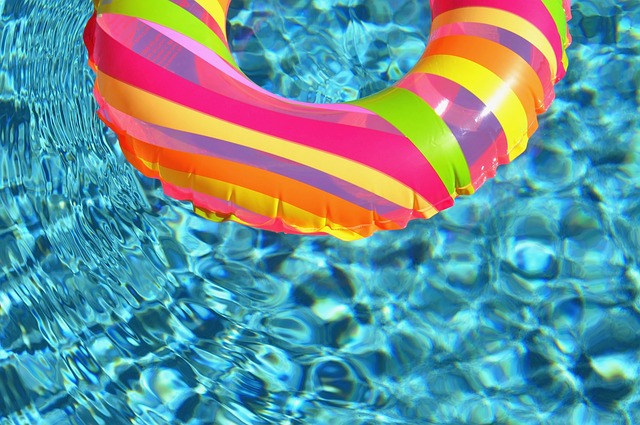Float therapy, a natural sleep aid, offers profound relaxation and stress reduction through immersion in warm water and Epsom salt, promoting rest and digestion without side effects or dependency. While traditional sleep aids like melatonin and benzodiazepines provide short-term relief with potential drawbacks, float therapy caters to those seeking long-term, holistic solutions for improved sleep quality. The choice depends on individual preferences, lifestyle, and health concerns, balancing the unique advantages of natural methods versus pharmaceutical interventions.
Are you tired of struggling with sleep? It’s time to explore alternatives that go beyond traditional sleep aids. In this article, we delve into two innovative approaches to rest and recovery: float therapy and conventional sleep pills. Understanding their unique benefits and drawbacks can help you make an informed choice for better nights and improved well-being. Discover why natural sleep aid methods like float therapy are gaining popularity, offering a peaceful escape from the daily grind.
Understanding Float Therapy: A Natural Sleep Aid
Float therapy, also known as sensory deprivation therapy, involves entering a specially designed float tank filled with warm water and epsom salt, allowing the body to float effortlessly. This practice promotes deep relaxation and has gained popularity as an alternative natural sleep aid. By blocking external stimuli, float therapy triggers the body’s parasympathetic nervous system, which is responsible for promoting rest and digestion, leading to improved sleep quality.
Unlike traditional sleep aids that often come with side effects or dependency issues, float therapy offers a drug-free approach. It helps alleviate stress and anxiety, conditions that can disrupt sleep patterns. The sensory deprivation environment encourages the brain to enter a state of deep calm, enhancing overall well-being. This natural sleep aid has shown promising results for those struggling with insomnia, restless legs syndrome, and even athletes seeking better recovery.
Traditional Sleep Aids: Common Choices and Their Effectiveness
Traditional Sleep Aids: Common Choices and Their Effectiveness
When it comes to addressing sleep issues, many people turn to over-the-counter or prescription sleep aids as a quick fix. Common choices include antihistamines, melatonin supplements, benzodiazepines, and non-benzodiazepine hypnotics. While these options can induce sleep faster, they often come with side effects like grogginess, memory issues, and dependency. Additionally, their effectiveness may wane over time, leading many to seek alternative solutions for better long-term rest.
Natural sleep aids, such as float therapy, offer a different approach. Immersing oneself in a pod filled with warm water and Epsom salt allows the body to relax deeply, promoting natural sleep rhythms without relying on external substances. Unlike traditional aids, float therapy has been shown to enhance overall well-being, reduce stress hormones, and improve sleep quality naturally over time.
Comparing Benefits and Drawbacks: Float Therapy vs. Sleep Pills
Float therapy and sleep pills are both sought-after solutions for improving sleep quality, but they offer distinct approaches with their own sets of benefits and drawbacks. Natural sleep aid enthusiasts often find themselves torn between these two options, each with its unique appeal.
On one hand, float therapy—also known as sensory deprivation therapy—involves immersing oneself in a confined, dark, and quiet space filled with warm water and Epsom salt. This practice promotes profound relaxation, reduces stress hormones, and enhances overall well-being. It can be an effective long-term solution for insomnia and anxiety, offering a unique and immersive experience. However, float therapy sessions may not suit everyone, as the sensory deprivation can feel uncomfortable or even disorienting for some individuals. Access to float centers might also be limited, making it less accessible compared to over-the-counter sleep pills. In contrast, sleep pills, or sedative medications, provide a quick fix by inducing drowsiness and promoting faster sleep onset. They are readily available and often more affordable than float therapy sessions. Nevertheless, these pills may have side effects like grogginess upon waking, potential dependency, and limited long-term benefits, making them less ideal for chronic insomnia cases.
Making an Informed Decision: Which One is Right for You?
Making an informed decision between float therapy and traditional sleep aids depends on understanding their unique benefits and your personal needs. Float therapy, also known as sensory deprivation therapy, offers a natural sleep aid by reducing stress and promoting relaxation through floating in a solution of salt water and Epsom salts. This method enhances mental clarity, improves mood, and can help alleviate symptoms of anxiety and depression, making it an appealing option for those seeking alternative solutions to improve their sleep quality.
On the other hand, traditional sleep aids come in various forms, including pills, supplements, and natural remedies. While they may provide quick relief from insomnia or restlessness, many rely on artificial means to induce sleep, which can have side effects and may not address the underlying causes of sleep disturbances. When considering which method is right for you, think about your lifestyle, preferences, and any specific health concerns. Natural sleep aids like float therapy cater to those looking for long-term solutions that enhance overall well-being, while traditional aids might be more suitable for temporary fixes or individuals with severe medical conditions requiring pharmaceutical intervention.
In the quest for restful nights, both float therapy and traditional sleep aids offer potential solutions. While sleep pills provide quick relief, float therapy presents a unique, natural approach focusing on relaxation and stress reduction. Considering their benefits and drawbacks, choosing between them depends on individual needs. If you seek a long-term, drug-free solution for better sleep quality, exploring the calming effects of float therapy might be worthwhile. Embrace the tranquility of floating and discover a new path to restful slumber.
